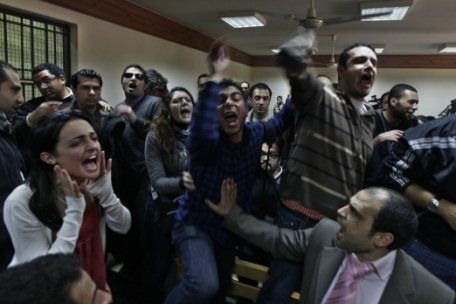Don’t Expect Much from Cairo

IRD: How do you see the prospect of the post-Mubarak Egypt’s relations with the United States after the release of the detained American citizens and calls in the Egyptian parliament to cut off ties with Washington?
MF: Egypt may have relatively distanced itself from Mubarak’s policies, but the overall structure of his era still exists. So we should not expect significant shifts such as downsizing ties with the US or unilateral revocation of the Camp David Treaty with Israel. Egypt is in dire economic circumstances: the national currency has lost its value, tourism and Suez Canal transit, two major revenues of the country’s income, and huge budget deficit are weak spots which foreign actors take advantage of to pressurize Cairo in its foreign policies.
IRD: We have reports of the Muslim Brotherhood’s backstage talks with American diplomats, while the military council ruling the country is openly courting Washington. Do you see a likely conflict between the strongly anti-American public sentiments on the one hand, and the Brotherhood and the military council?
MF: I think we would see no significant turn in Egypt’s foreign policy before the shift of rule from the military council to a civilian government. Besides, Washington will prop up the Egyptian army as a lever to retain influence in one of the most important Middle East countries.
IRD: Do you think Israel’s recent raids against Hamas in Gaza would bring another collision between Cairo and Tel Aviv?
MF: Israel is taking advantage of the fissure among Arab countries, and Arab League’s concentration of force on Syria to topple the only resistance front against Israel in the Arab World. I think Egypt would call for a stop to the attacks and return to the previous state of relations between Tel Aviv and Hamas.
IRD: What is your analysis of the presidential electoral trends in Egypt?

